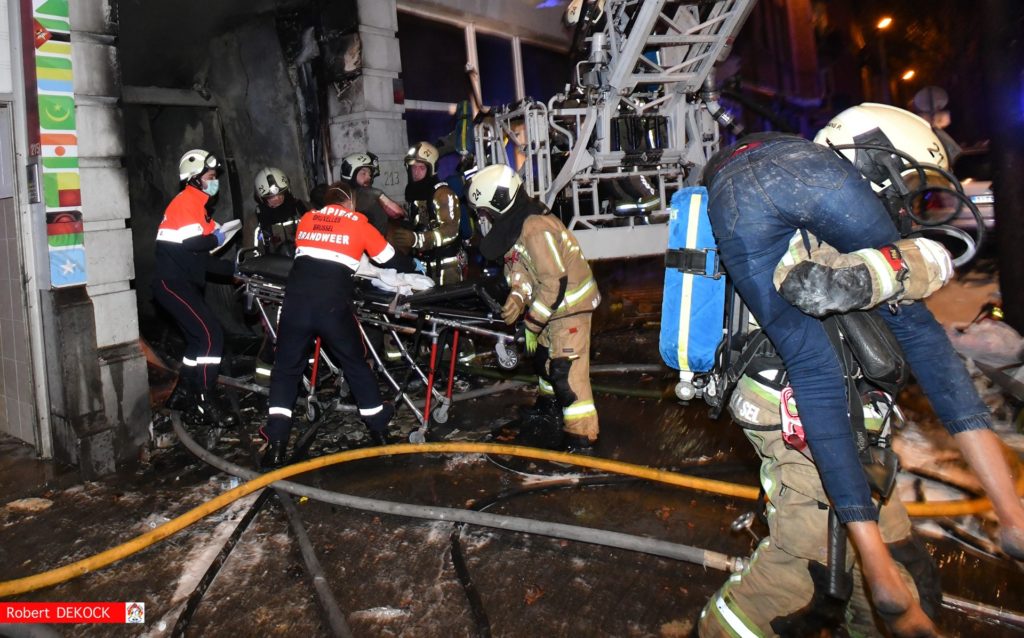After being on the rise for a decade, the number of ambulance interventions carried out by the Brussels fire brigade hit a new record in 2022, leading the public sector union to sound the alarm about the unsustainable state of affairs.
Last year, more than 100,000 ambulance interventions were carried out by the Brussels fire brigade, public sector union SLFP permanent delegate Eric Labourdette stated on Tuesday. This represents an increase of some 11,000 interventions in just one year. Labourdette expressed concern that other emergency services of the fire brigade will be cut to strengthen the emergency medical aid teams.
"People ask for an ambulance in any situation because they think it's quicker. We're no longer an emergency medical service, we are taxis."
In ten years, the number of ambulance interventions in Brussels has risen over 30%, from 63,709 in 2012 to 100,204 in 2022. The SLFP highlighted the non-Emergency Medical Assistance (EMA) interventions last year, which increased by around 25,000.
Labourdette called on regulating doctors who answer 112 calls to "decide whether or not to send an ambulance."
Under-funded and over-worked
The warning follows a recent strike by firefighters and rescue workers at the end of last month. The service highlighted increased violence on the ground but also the lack of personnel to handle the interventions. Unions say that the service is in dire need of funding.
Labourdette has previously called attention to a "lack of political will to value the work of the fire brigade." He again stressed the disruption that more ambulance call-outs causes to firefighters on call, where teams are often short of firefighting personnel as a result.
"A lack of personnel, a lack of recruitment and the increase in interventions makes an explosive cocktail that puts people in serious danger. Firefighters are working under increasing pressure. If this continues, there will be accidents."
Related News
- 'Staff are on their knees': Brussels firefighters to go on strike
- Emergency service workers announce strike following NYE violence
A working group has been set up to find solutions but recruiting new staff will be key, especially as other emergency services are at risk to make up for the loss of staff. "This situation is not unique to Brussels, it is the same everywhere. We need an urgent reorganisation, it's lamentable," Labourdette concluded.

